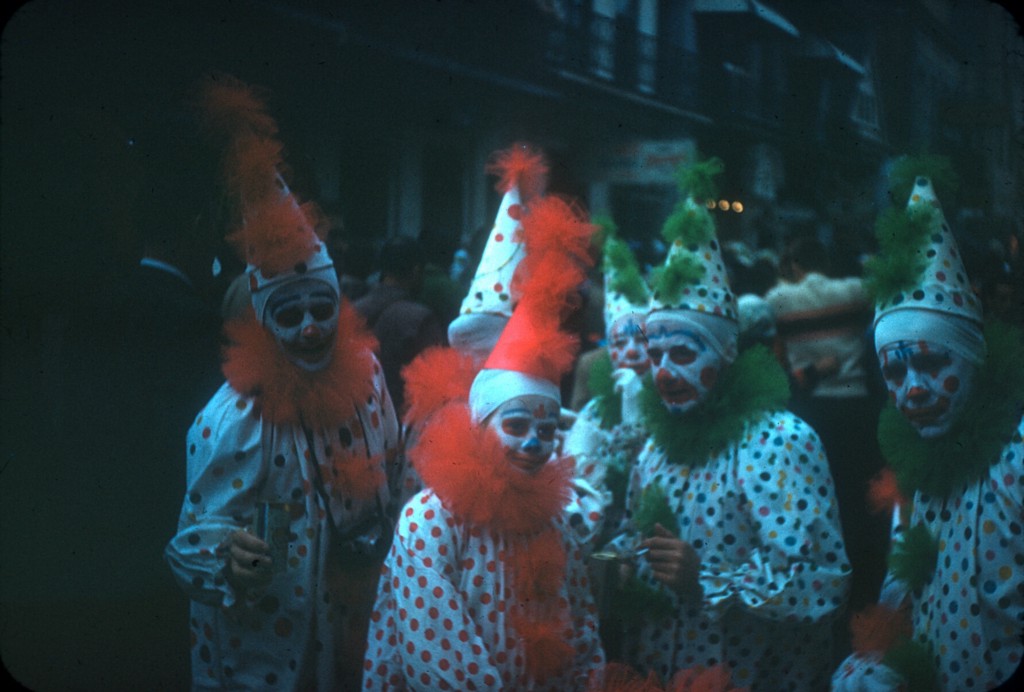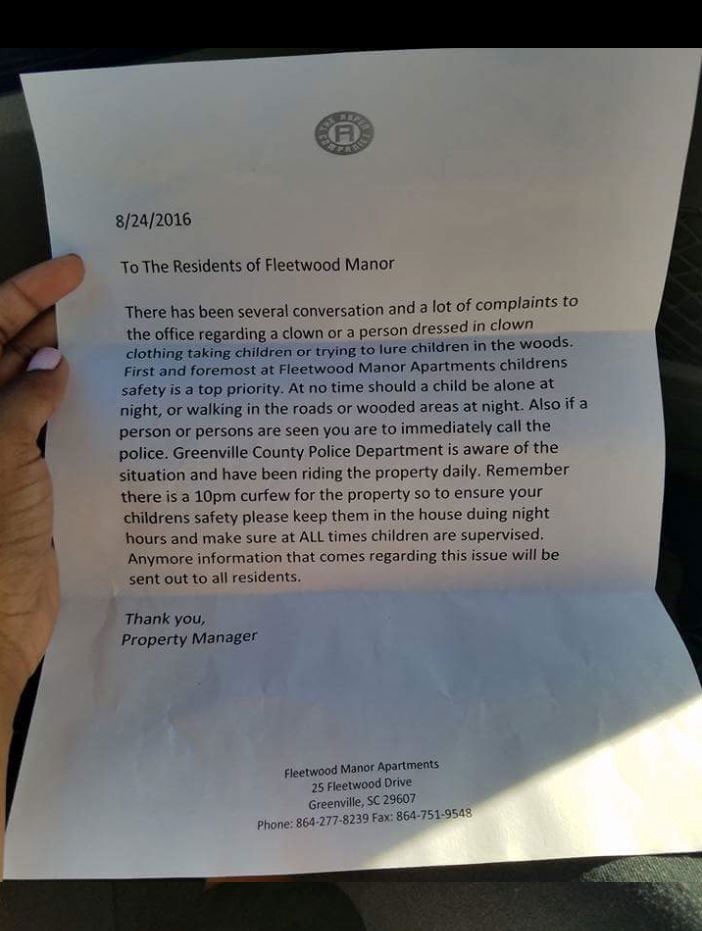What Do You Think A Clown Is?

Clowns are in the news lately; specifically scary clowns (Rolling Stone has a good primer). It started in the Carolinas and it’s become some kind of pandemic across America—there have been reports of scary clowns in Texas and Virginia and even the seemingly sedate Pacific Northwest. Even New York is shook.
I guess I don’t care about whether you think clowns are scary or not. It is not original to say that you think clowns are bad, here in 2016. It is not sassy or contrarian and no one will get a crush on you because of it. I guess the party line on clowns, here in 2016, is that they are generally sinister and that no one loves them and why would you have a clown at your birthday party. Why would you? When was the last time you met someone who loved clowns? It was a long time ago, I bet. It was a long time ago and probably they were lying anyway, because there was a clown standing right there and they did not wish to hurt its feelings. Let’s all agree that no one can love a clown, and let’s move on to what is important.
But there is an important question here as well, and a lot of people are already talking about it. It’s such a good question it can actually serve as a party game. Try it out with you friends. Ask yourself! Your answer will reveal a great deal. What do you think a clown is?
About those clown sightings? Police always go and say, “Nope, it was a hoax, just someone DRESSED as a clown.” What… is a real clown?
What’s not important: Do I Love Clowns?
What is important: What Do I Think a Clown Is?

Preliminary research shows that this is a more complex question than it appears to be. Bear with me, and read this letter very carefully:

My friend D. showed me that letter, and directed my attention to the following sentence: “There have been several conversations and a lot of complaints to the office regarding a clown or a person dressed in clown clothing…” (emphasis mine)
The next thing D. said was: “The idea that a clown is something other than “a person dressed in clown clothing” blows my mind and makes me laugh the most.” This made immediate and intuitive sense to me. For the likes of me and D., there is no difference between “a clown” and “a person dressed in clown clothing.” Yes obviously you can go to clown school, and you can learn the ways of the clown, but what makes you a clown is when you put on clown clothes. Yes? You aren’t a clown inside. You aren’t born a clown. The person who wrote this letter is making some kind of distinction between a born clown, an innate clown, and a person who just bought some clown clothes at the shops. For me and D., this distinction is unimportant. You become a clown when you put on the clothes of a clown and everyone looks at you and goes: oh, a clown. There they are: a clown. Yes? Apparently no.
I put this to S., and she immediately took the opposite stance. For S., being a clown is like being a centaur, or a mermaid. You don’t stop being a clown when you take off your clown clothes, even if you might wish this to be the case. You just are a clown, the way a leopard is a leopard. I put it to J., and he said the same thing. What he said was: “I don’t believe clowns ever break character.”
So. Preliminary research reveals that you get people who think of clowns as a Thing Apart, as clowns eternal, and people who think of clowns as just “a Man In Clown’s Clothing.”
The question is: which one are you?
Think about it.
What do you think a clown is?
Do you believe that the characteristics of a clown are inherited, or do you believe that they are acquired? Is a clown still a clown when he is not in his suit? This is veering into the territory of philosophy, don’t you think? Like maybe it could be in a textbook? Just a drawing of a clown and then a big question mark above its head. A whole chapter in a textbook called “What Do You Think A Clown Is: The Big Question.”
Please think about your answer to this, and then tell me. Think about it HARD.